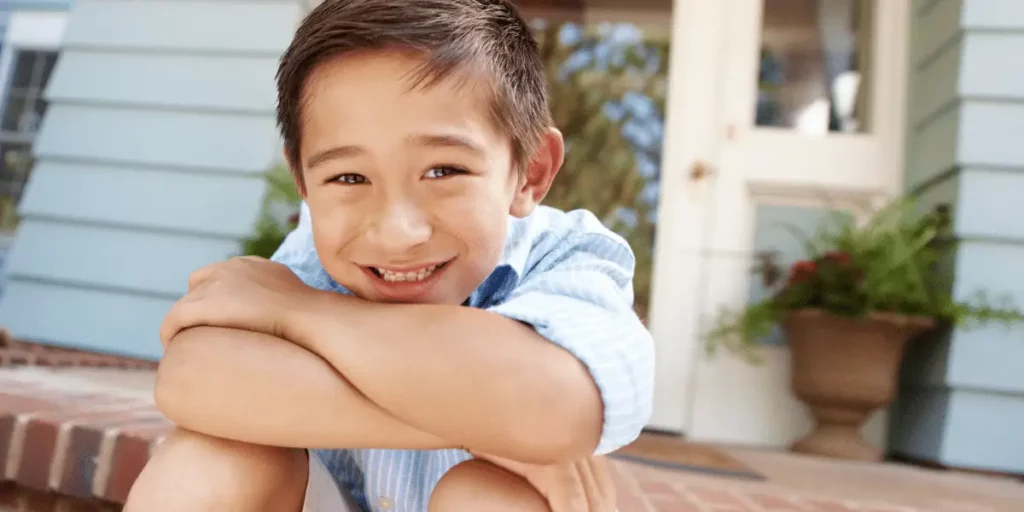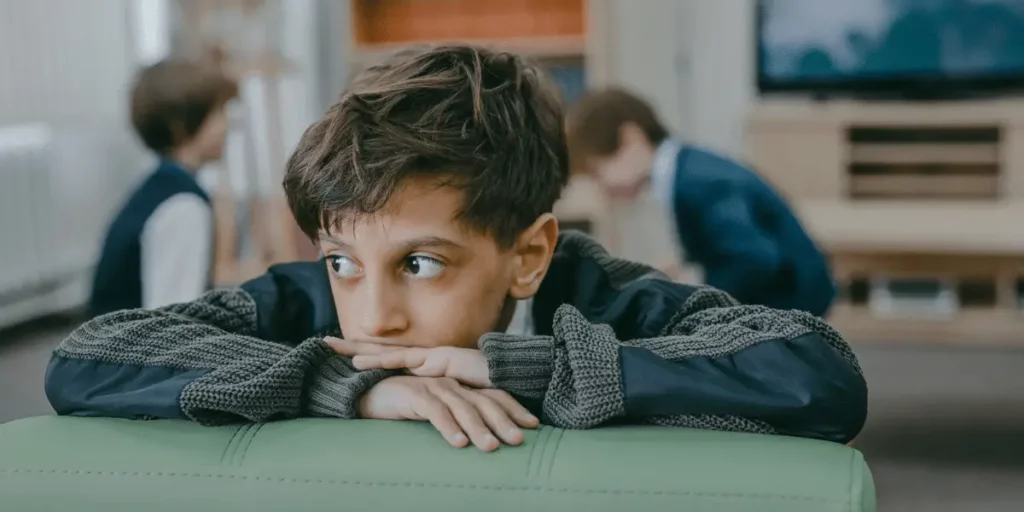
Every parent wants their children to feel confident about themselves. Confidence is key to success in life. However, many kids these days lack the self-confidence they need to succeed.
That’s why it’s important for parents to understand how to build confidence in kids. This blog post will provide key tips and advice on how to best help your child develop lasting self-confidence.
Why Is Self-Confidence Important in Kids?
Self-confidence is a key part of a child’s development and well-being. A confident child is more likely to take on challenges, try new things, and have higher self-esteem. Building confidence in kids can help them become more academically and socially successful.
Other benefits of self-confidence in kids are increased happiness, better communication skills, improved resilience, and better overall life outcomes. Let us discuss these benefits in more detail below:
Increased Happiness
Self-confident kids are usually happier as they believe they can achieve anything they set their minds to. This sense of security and optimism gives them an overall positive outlook in life.
Better Communication Skills
Another benefit of instilling confidence in kids is that it helps them communicate better. Confident kids are more likely to express themselves clearly and confidently, leading them to engage in meaningful conversations with people around them. They are also more likely to be assertive and speak up for themselves when needed.
Improved Resilience
Children with high levels of self-confidence tend to be more resilient in the face of adversity. They’re better able to handle life’s challenges and are less likely to become overwhelmed or give up in the face of difficulties. This can be a great asset for them as they grow older and encounter more complex issues in life.
Overall Better Life Outcomes
Finally, kids who have strong self-confidence tend to go on to have better life outcomes. They are more likely to be successful in their education and career and enjoy healthier relationships. This is because they are more likely to take risks and not be limited by self-doubt.
Now that we’ve established the importance of self-confidence in kids, how can parents help foster this important trait?
A child’s self-esteem must be a priority for parents. Raising confident kids is not hard. If parents take a proactive approach to help their kids gain confidence, then low self-esteem in kids won’t be an issue.
There are many ways to boost confidence and establish healthy self-esteem for kids. It’s just a matter of implementing them properly without compromising a child’s feelings. Eventually, parents will be able to raise confident children as they learn to manifest good self-esteem.
Tips on How to Build Confidence in Kids

There are many ways in which parents can help their children build confidence and self-esteem. Here are some tips to help parents create an environment that will build self-esteem in their kids:
1. Encourage Them to Be Independent
One of the best ways to help kids build confidence is to let them know they can take care of themselves. Encourage your child to try new things and be independent in their decisions. This will help them realize how capable and strong they are.
For example, allow them to pick out their own clothes or make their own snacks. This will help build confidence in their ability to think for themselves and make good decisions.
2. Provide Positive Reinforcement
Praise your child for trying new things, even if they don’t succeed right away. Tell them how proud you are of them for taking on a challenge and doing their best. This will help them realize how capable they are and how much you appreciate their efforts.
It’s also important to praise their efforts and not their outcomes. This is because it’s not how well they do something that matters but how hard they try and how much effort they put in. Praising kids will surely give them the confidence boost they need to get rid of low self-esteem.
3. Encourage Them to Set Goals
Having goals can help kids stay motivated and build confidence in their abilities to achieve them. Set achievable goals with your child, such as reading a book or doing a puzzle each day. Once they achieve their goal, be sure to praise them for their hard work and dedication.
4. Teach Them to Accept Failure
Failing is a part of life, and it’s important to help kids understand that mistakes are OK. Instead of focusing on how they failed, focus on how they can learn from the experience and how it can help them grow. This will help your child learn to accept failure and become more resilient in adversity.
For example, if your child fails a test, acknowledge how hard they tried and how proud you are of them for giving it their best shot. Then, offer to help them study for the next test and guide them on how to approach it differently.
5. Model Confidence
It’s important to be a role model for your child when it comes to building confidence. Let them know how you’ve experienced failure in your life and how you overcame it by being resilient and working hard. This will help them understand that it’s OK to have setbacks and how to deal with them healthily.
6. Spend Quality Time Together
Spending quality time with your child is one of the best ways to instill confidence in them. Take time to talk and listen to them, as this will help your child realize their importance to you.
Let them know how proud you are of them and how special they are in your life. Your child will feel supported and secure by constantly reminding them how important and loved they are.
These tips can help parents create an environment that will foster strong self-confidence in their kids. It’s important to be patient and understanding as children develop at different paces, so try not to put too much pressure on them.
By providing a supportive environment and allowing them to make mistakes and learn from them, parents can help their kids build lasting self-confidence.
What Are the Things That Could Compromise Kids’ Confidence?

Unfortunately, many factors can affect our kids’ confidence. Some of these include:
1. Bullying or Negative Pressure from Their Peers
One of the biggest threats to a child’s confidence is being exposed to bullying or negative peer pressure. This can be especially damaging if it comes from someone they look up to and admire, such as an older brother or sister.
2. Parental Neglect
Parental neglect, whether intentional or not, can also affect how confident our kids feel. This could be anything from not giving them enough attention to not helping them with their problems. Therefore, parents must constantly check in with their kids and ensure they feel safe and supported.
3. Unstable Home Environment
Kids who live in an unstable home environment may find it difficult to build confidence, as they’re constantly worried about how the current situation may affect their future. Plus, if there’s a lot of fighting or drama in the home, it can be very difficult for them to focus on anything else.
4. Unhealthy Comparison with Other Children
A lot of parents make the mistake of constantly comparing their children to their peers and how well they may be doing. This can lead to feelings of worthlessness, especially if their kids’ achievements are not on par with others. Therefore, parents must avoid comparisons and focus on how proud they are of their children.
5. Overly Strict Rules Set at Home by Parents
Overly strict rules at home can also negatively impact the confidence level of our kids. Not only do they feel like they’re unable to make their own decisions and express themselves freely, but this may also lead them to develop anxiety, which can further compromise their confidence.
6. Not Having an Outlet to Express Their Feelings
Finally, some kids may find it difficult to express their feelings and let out their emotions. Therefore, parents should ensure that their children have an outlet, such as writing or art, to help them work through how they feel healthily. It’s always important for kids to feel heard and understood.
While it might be hard to keep up with all that’s going on in our children’s lives, we must take the time to understand how their environment and circumstances may be impacting their confidence. With this knowledge, parents can build a safe and supportive home atmosphere for their kids.
Parents must remember that everything starts at home.
This means that how parents interact with their children and how they treat them can greatly affect how confident their kids feel about themselves. We must set clear boundaries and expectations and remember to understand and support our kids’ needs.
What Are the Signs That a Child Is Suffering from Low Confidence?
It’s very easy to spot when a child is lacking in confidence. Some common signs that may indicate your child has low self-confidence include:
1. Refusing to Interact With Other Kids
One of the first signs of low confidence in children is a reluctance to interact with other kids, whether at school or in the playground. If your child seems to be avoiding playing and mixing with their peers, it could be because they lack the self-esteem needed to feel comfortable around them.
2. Low Academic Performance
Low academic performance can also be a sign of low confidence and self-doubt. If your child is struggling with their studies, they may be too scared to try new things or ask questions in class because of how unsure they feel about themselves.
3. Fear of Failure
Fearing failure can be one of the most common signs that a child has low confidence. If your child is reluctant to take participate in activities or try new things, it could be because they are scared that they might fail and not look good in the eyes of their peers.
4. Poor Self-Image
It’s also important to pay attention to how your child views themselves and how they talk about themselves when they talk to others. If your child likes making negative comments about how they look, their intelligence, or their talents, it could be a sign of low confidence in their abilities.
Parents must always be attentive to how their children feel and view themselves. Low self-confidence can majorly impact a child’s development, so it is crucial to be proactive in helping them build the confidence needed for future success.

Conclusion
Kids need their parents’ love, acceptance, and understanding to build confidence. Building self-confidence in children can take time and patience, but it is achievable with the right approach.
Encourage your children to cultivate relationships with others and try new activities to develop their self-esteem. Also, be sure to show your kids how proud you are of their accomplishments, regardless of how small they may be.
Most importantly, provide your kids with a safe environment to express themselves—a place where it’s OK to make mistakes and learn from them without fear of criticism or punishment. If you follow these tips, your child will soon have the confidence and self-esteem needed for a successful future.
Frequently Asked Questions
What causes low confidence in a child?
What are signs that my child may be suffering from low self-confidence?
What should I avoid when trying to build confidence in my child?
What activities can I do with my child to help build their confidence?
You can also encourage them to participate in activities or sports that help them develop their skills and use their strengths to succeed. Finally, it is crucial to create opportunities for your child to have a voice and be heard so they can learn how to express themselves confidently.
What advice do you have for parents trying to help their child build confidence?
Knowing how to build confidence in kids properly is key to raising children with healthy self-esteem. Focus on providing your child with positive reinforcement and creating a nurturing environment where they can explore their capabilities. Finally, provide them with plenty of opportunities to practice their skills and make mistakes in a safe environment.



Leave a Reply